When it comes to navigating the complexities of employment agreements, the non-compete clause often sparks a range of questions. Understanding your rights and obligations in this arena is crucial for maintaining a smooth professional journey. This acknowledgment letter serves to clarify your acceptance of the terms and conditions related to non-compete restrictions. Dive deeper into this essential topic and empower yourself with knowledge by reading more!

Clear Definition of Terms
A non-compete clause, typically included in employment contracts, restricts employees from engaging in competitive activities within a specified geographical area for a defined period after termination of employment. Key terms often defined include "competitor," which refers to any business that offers similar products or services within the industry; "confidential information," encompassing proprietary data, trade secrets, and sensitive business strategies obtained during employment; and "geographical area," outlining specific locations where the employee is prohibited from competing, such as cities or states. Additionally, the term "duration" defines the length of time the non-compete agreement remains in effect, often ranging from six months to two years post-employment. Understanding these terms is essential for both employers and employees to ensure compliance and avoid potential legal disputes.
Duration of Restriction
Non-compete clauses play an important role in protecting business interests, particularly duration of restriction, which outlines the specified time frame during which an employee cannot engage in competing activities. Typically, this duration can range from six months to two years, depending on the nature of the industry and the role of the employee. For instance, if an employee leaves a technology firm in Silicon Valley, restrictions under California law may be scrutinized for reasonableness. In contrast, a retail employee in Texas may face a longer non-compete term due to different legal standards. Understanding the implications of these restrictions ensures that both parties are aware of their rights and obligations and can navigate the professional landscape effectively after the employment relationship concludes.
Geographical Scope
The geographical scope of a non-compete clause refers to the specific areas in which an individual agrees not to engage in competitive activities following the termination of employment. Typically, this region can encompass cities, states, or even entire countries, depending on the business's operational footprint. An effective non-compete clause provides clarity on the geographic limitations to protect company interests without imposing unreasonable restrictions on the individual's ability to find employment. For instance, a technology firm based in Silicon Valley may restrict its employees from working in similar companies within the San Francisco Bay Area for a stipulated duration post-employment. Such specifications help ensure both the enforcement of the clause and the individual's right to work in a reasonable market area.
Employment Details
The non-compete clause within an employment agreement, often associated with corporate positions, prohibits employees from engaging in similar business activities after leaving the company. This clause is particularly significant in competitive industries, such as technology and finance, where proprietary knowledge about clients and products, which can lead to substantial financial impact, is sensitive. Legal enforceability of non-compete clauses varies significantly by state in the United States. For instance, California generally invalidates these agreements, while states like Texas uphold them under specific conditions, including duration (typically one to two years) and geographical restrictions that must be reasonable to protect legitimate business interests. Understanding the implications of these clauses before acknowledging them is crucial for employees in safeguarding their future career opportunities.
Legal Consequences
Non-compete clauses, commonly found in employment contracts, dictate restrictions on employee competition post-employment. Violations may lead to legal disputes, resulting in court rulings that can impose significant financial penalties or injunctions. For instance, states like California prohibit non-compete agreements, rendering them legally unenforceable. In contrast, states like New York enforce reasonable non-compete agreements if they protect legitimate business interests, such as trade secrets or client relationships. Breaching a non-compete can prompt employers to seek remedies through litigation, possibly causing reputational harm and financial strain for the former employee. Acknowledgment of such clauses ensures awareness of potential legal ramifications, fostering compliance and mitigating risks for both parties.

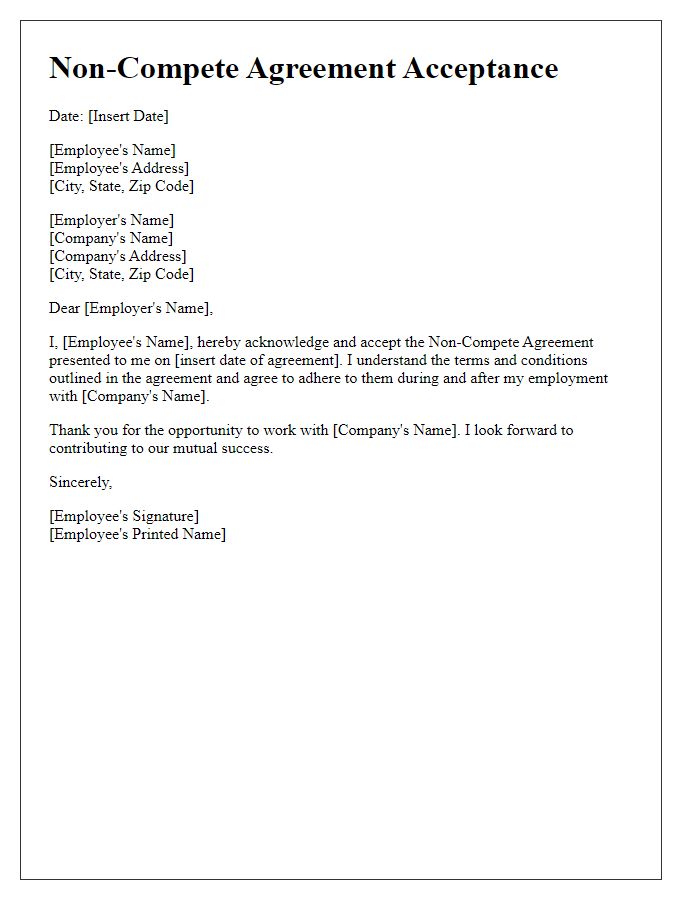
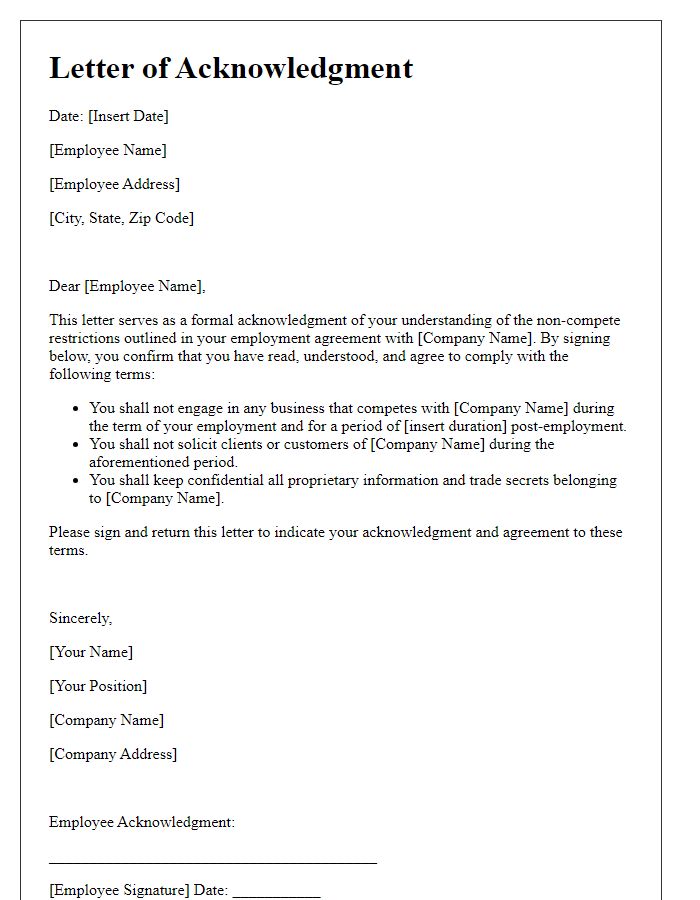
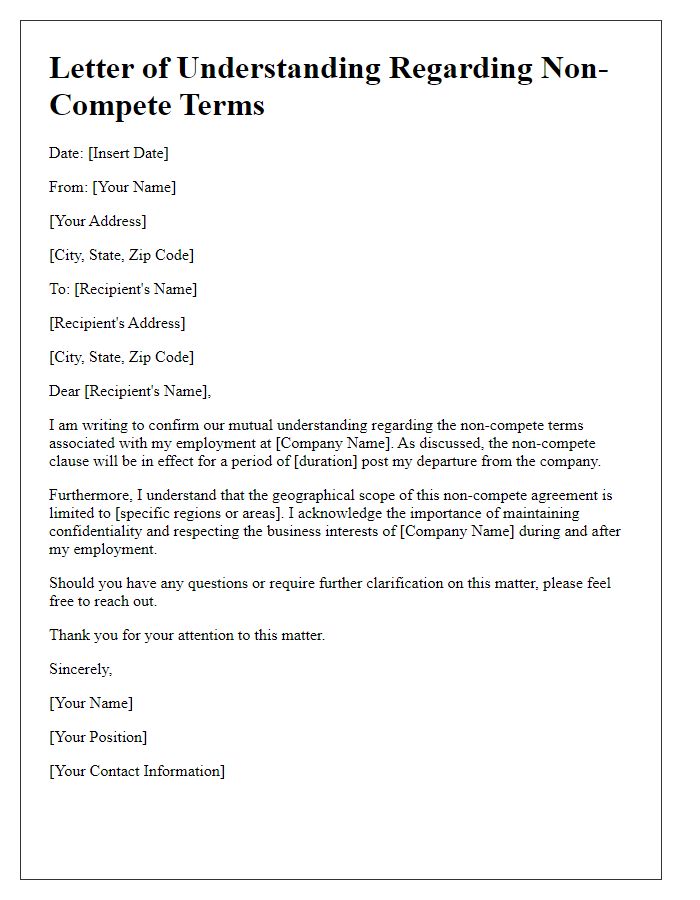
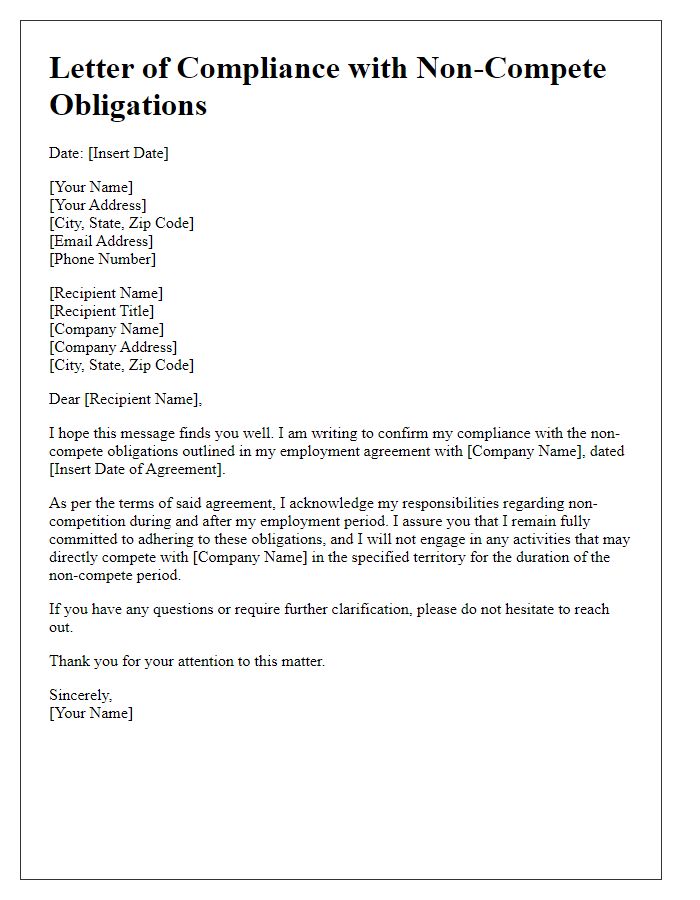
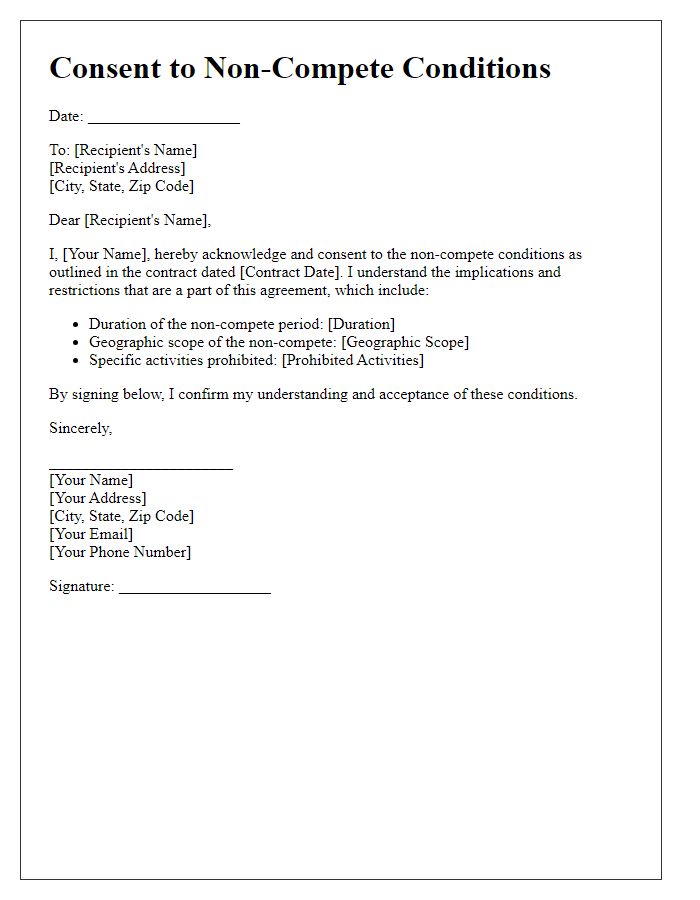
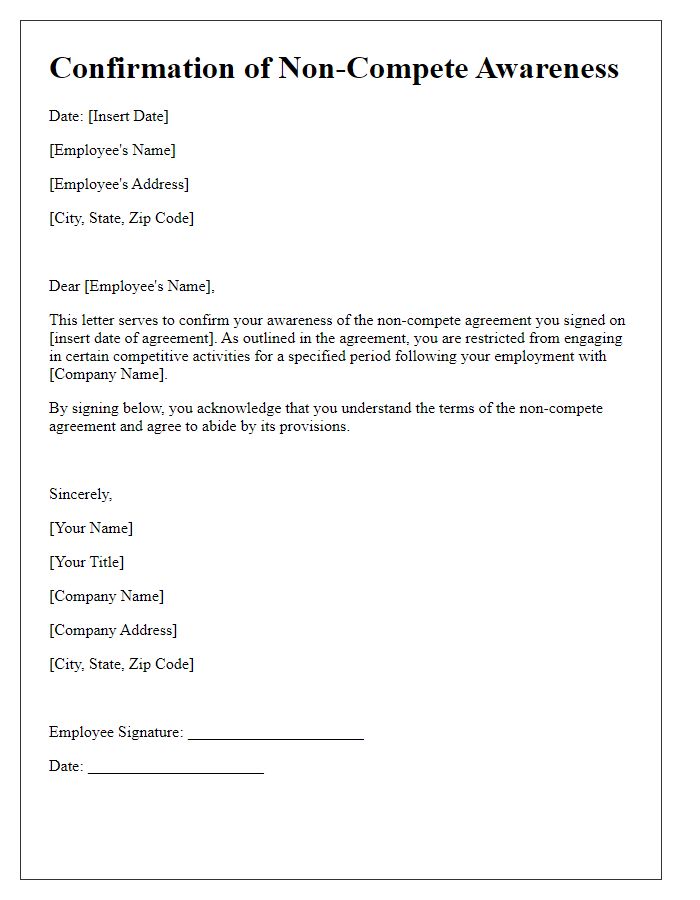
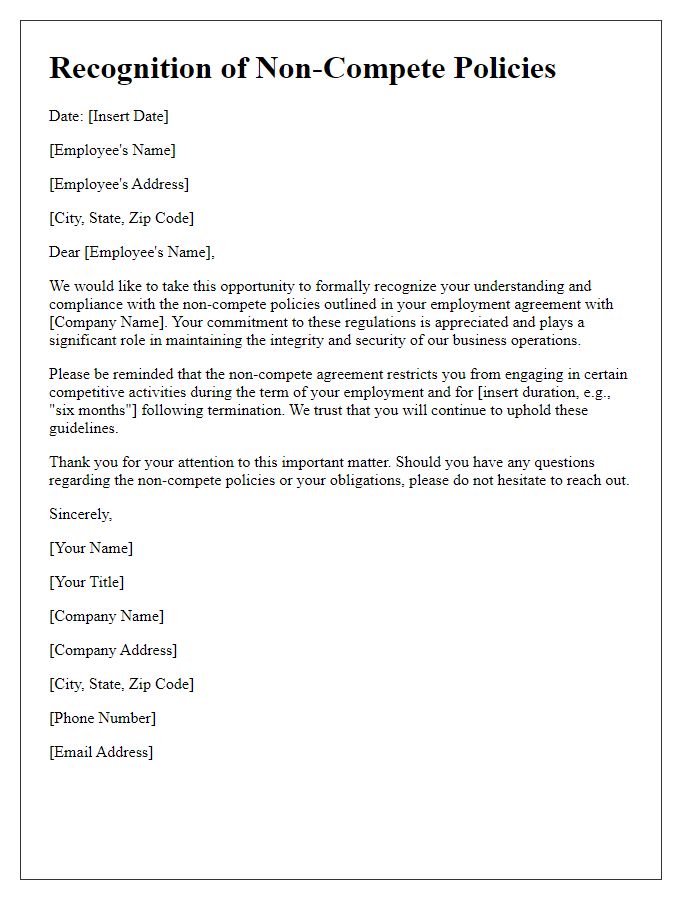
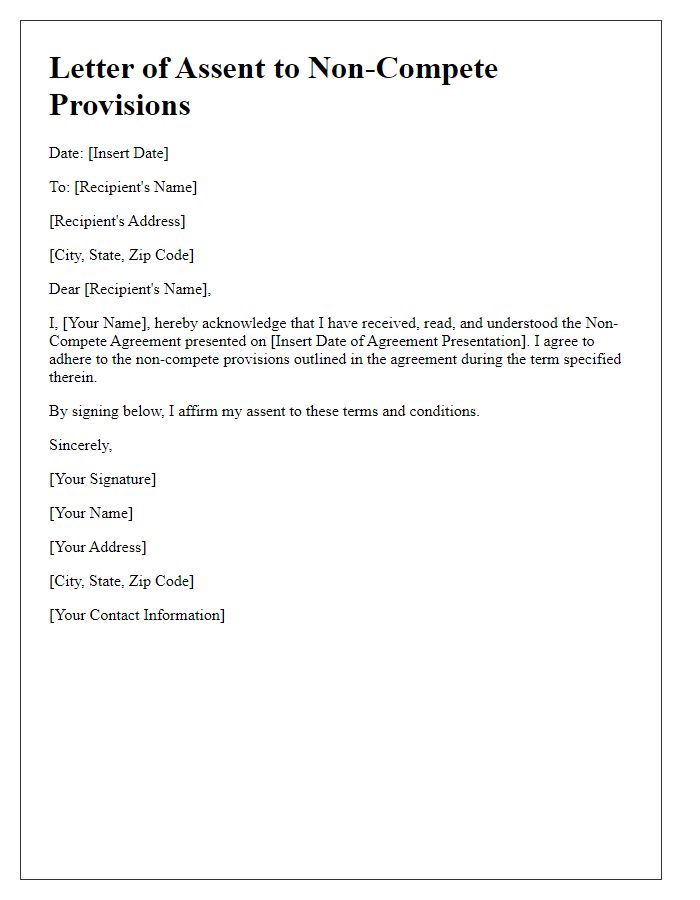
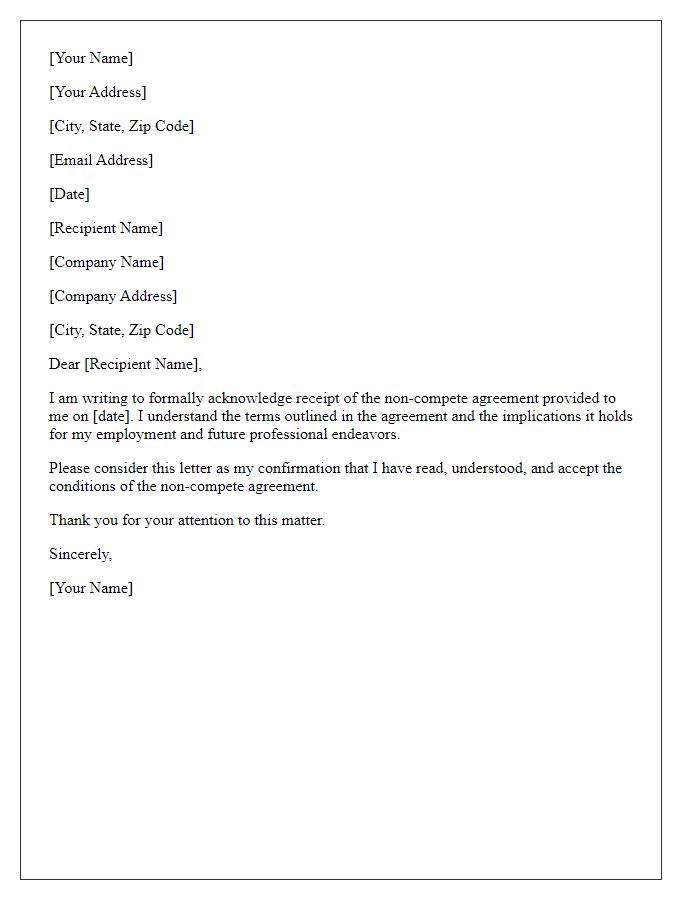
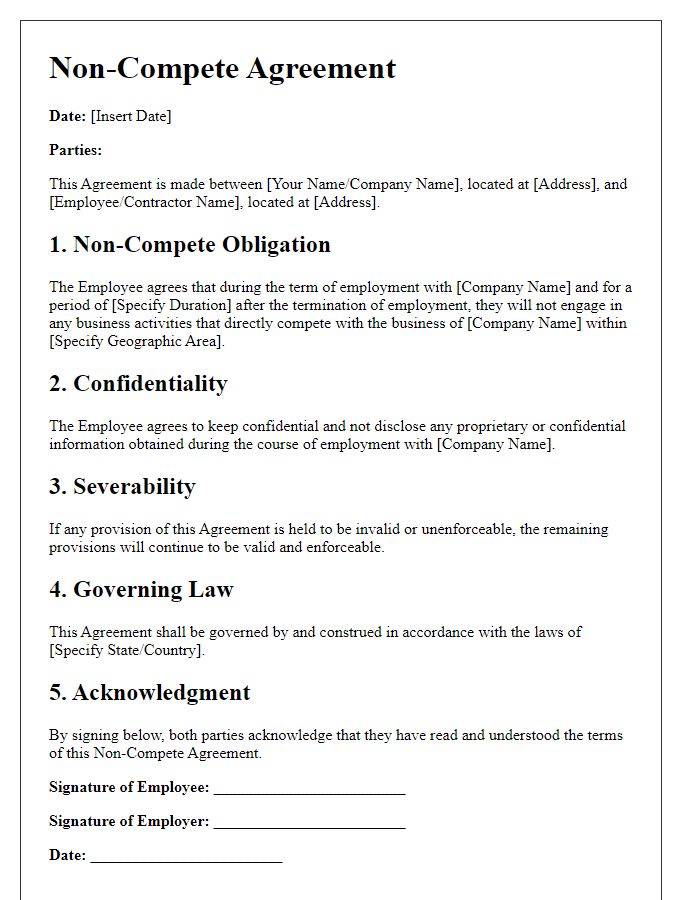


Comments